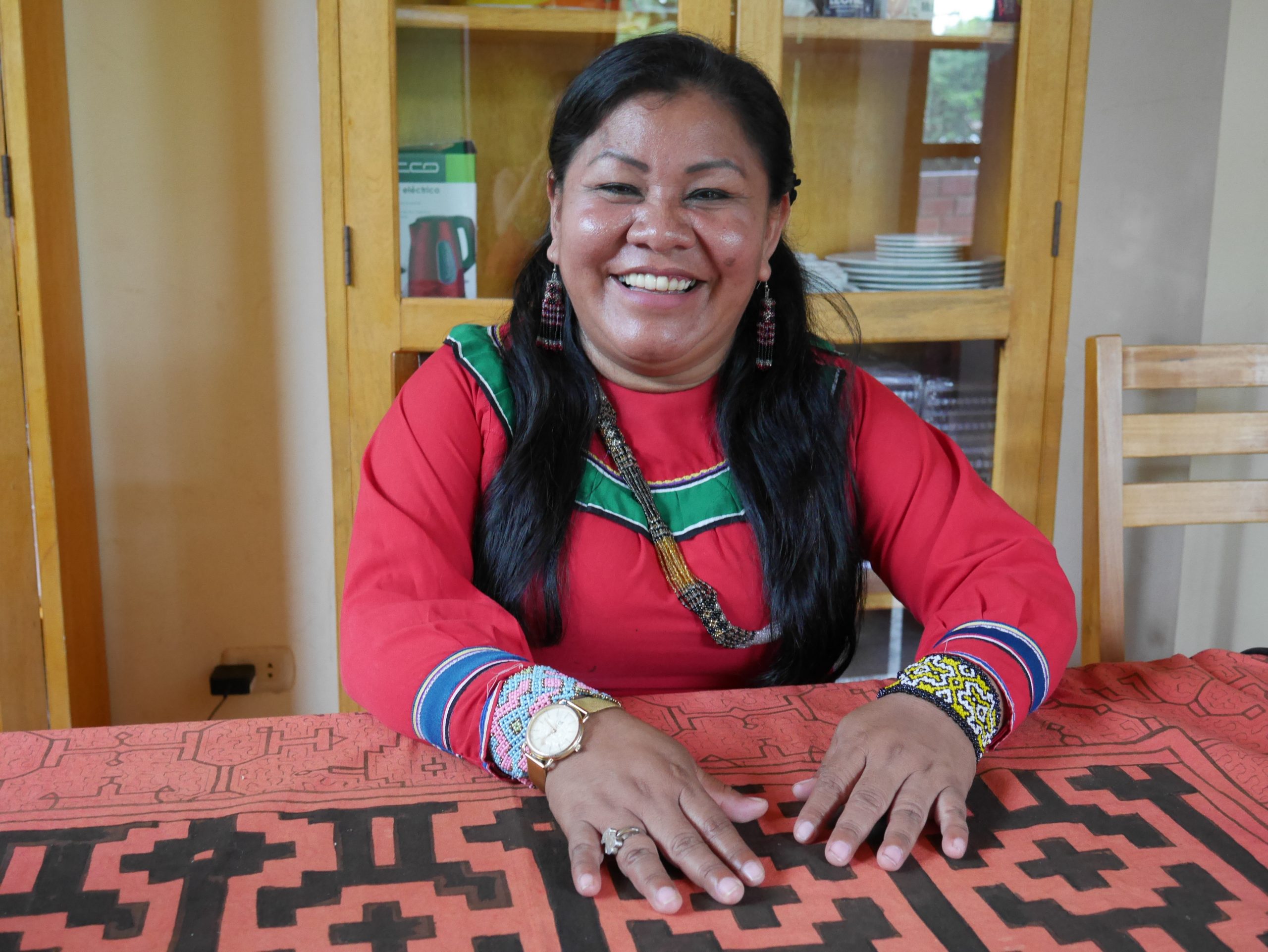Meet Diana Mori Gonzalez. She is originally from Callería native community, from Shipibo-Conibo ethnic group, in Ucayali, Central Peru. She works for Nii Biri, the social enterprise that has been set up to coordinate and support indigenous businesses at our Nii Kaniti project. (Read more about the Nii Biri organisation here and how it is addressing the drivers of deforestation on the ground in Peru.) Diana’s role is to promote the products produced by the Nii Kaniti indigenous communities to regional or national markets and to help them to innovate to increase the value of products.
We spoke with Diana about her background, her role at Nii Biri and how the Nii Kaniti project is improving the lives of her community and other indigenous people in the project. Diana is clearly driven and has worked hard on indigenous rights for Ucayali native communities (and for all of the native communities in general), particularly on indigenous women’s rights. She strives to be an example for the next generation of indigenous girls to become educated.
Diana grew up the only girl in a family of many sons. As a child, she was taught how to cook and had to attend to her brothers. This was natural in the culture of her community. Later on, her parents moved out of the community into the local city, Pucallpa, in order for her brothers to study and Diana was left in the forest community with her grandmother. Her grandmother taught her many traditional skills such as embroidery and painting technics and ethnic designs and the use of medicinal plants. Her brothers went on to university to become engineers.
Despite these engrained gender roles, Diana was driven; she studied hard, eventually also moved to the city for school and went on to work for the local government, becoming the first woman Director of Indigenous Peoples Development in the Regional Government of Ucayali.
Now at Nii Biri, Diana is the promoter of sales. She explains that the indigenous communities are remote and speak a different language, Shipibo – Spanish is not their first language. Because she is from a native community and speaks Shipibo, she can better communicate with people in the native communities to encourage them to take part in the initiatives of forest management and of the value of conservation and using forest resources sustainably. For the communities, “we don’t have big industries, we just have the forest and all we can do is give value to it.“
Diana has been working on ideas for many economic activities from the indigenous communities. She calls herself “an opportunity hunter“ for her people and talks of ways to use forest resources beyond just sustainable forestry such as traditional ceramics and painted and dyed fabrics, design workshops, fishing and ecotourism. She tells a story of how in her community there is a spot in the rainforest where thousands of birds lay light blue eggs every year. In the past, the community would take and eat the eggs, however now that this can be an eco-tourism site, the local people are incentivised to leave them be.
Her role is also to promote the indigenous work and culture to potential supporters outside of the communities. Because she is Shipibo, she is the perfect figurehead to tell the story of the forest, for example how you can make a certain colour of dye from the bark of a particular tree, as well as how purchasing indigenous made products is supporting these communities and the impact it has on the ground.
Diana is proud to work for Nii Biri because their work will “revitalise” indigenous culture. People in the forest are wise… the culture is wise. They don’t feel Shipibo if they are not in the forest.“ She says there has been high migration out of the communities because there are no economic opportunities, and therefore their customs are being lost.
“Indigenous women contribute in the same way as men and are the best caretakers of the forest. We want to be part of an indigenous economy where we sell forest products in a legal and certified way. We want to change the perception that indigenous people are poor. Our management of the communal forests is an example for other indigenous communities.”
Diana believes it is important to engage women from indigenous communities in conservation and sustainable livelihood activities because they make wiser decisions than men. “We think about the future and feeding the future. Men negotiation different things and often spend the money – women think about family and community.” About conservation, she says, “I have to be in the fight… as mothers and women, as a community. We have to build a way forward together. Girl power!”
Read more about the work of the Nii Kaniti project here.


